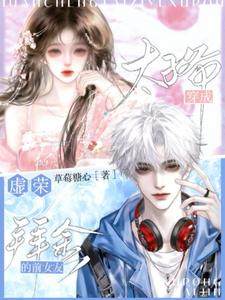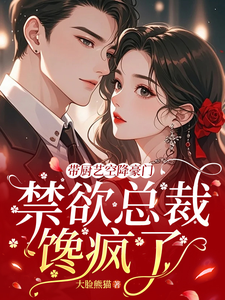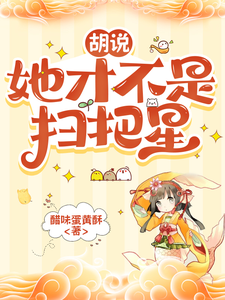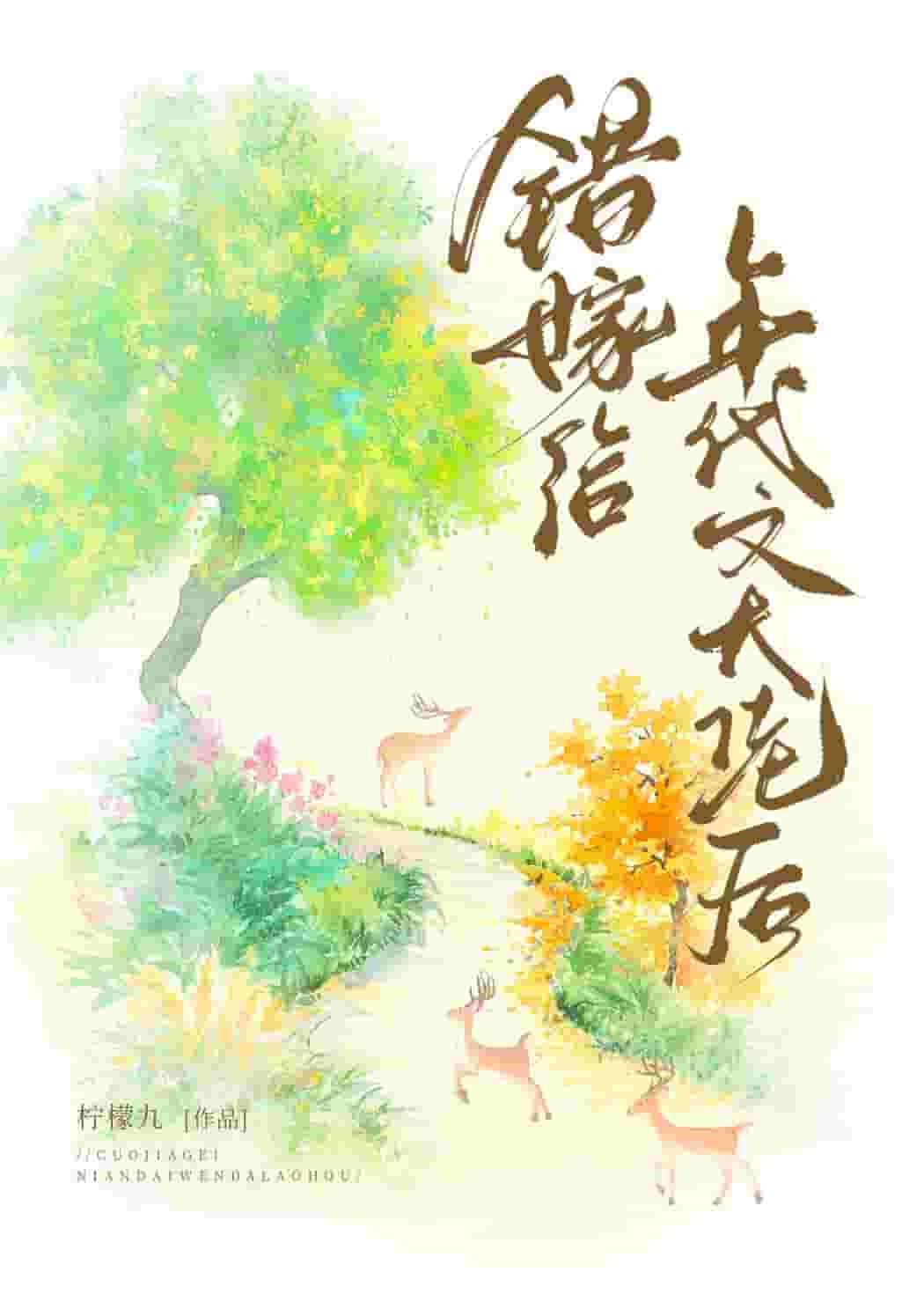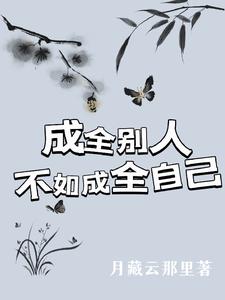Making hand-held mutton doesn’t require much skill—it all depends on the quality of the lamb itself.
In her past life, Shen Miao once ate hand-held mutton at a herder’s home in Abag Banner, Xilingol League, Inner Mongolia. That was the best version she’d ever tasted. The people of Inner Mongolia were incredibly hospitable. Even as a Han Chinese who couldn’t speak Mongolian, if she approached their doorstep just to ask for a cup of water, they would slaughter a sheep and brew tea to warmly entertain her.
She was the type who loved backpacking and driving around to explore. Whenever she arrived in a new place, she would wander through the oldest streets and alleys, where life thrived most authentically. Those shabby-looking hole-in-the-wall eateries were always the most delicious, and she could often pick up new cooking techniques there. Whenever she had free time, she especially enjoyed "culinary treasure hunting" across different regions.
But her trip to Inner Mongolia was different. She deliberately chose remote pastoral areas, far from the beaten path, just to taste authentic hand-held mutton. She had heard that the Hongor Grassland in Abag Banner was known as the "Sky Road of the Grassland," untouched by tourism development, which was why she went.
And she didn’t regret it. Walking across the vast green expanse, especially in August when the grass was lush and the sky and clouds hung so low it felt like she could reach up and touch them, she encountered scattered herders living in yurts. They invited her inside, serving her salty milk tea—rich and fragrant, accompanied by an array of dairy products like dried milk curds and milk skin, all laid out for her to enjoy.
No sooner had she sat down than they swiftly slaughtered a fat-tailed sheep for her outside.
The freshly killed lamb was chopped into large bone-in pieces and boiled in plain water. The herders themselves often ate it without any seasoning, but for Shen Miao, they prepared salt and dipping sauces.
That was the first time Shen Miao truly understood how delicious freshly slaughtered Inner Mongolian lamb could be. Holding the meat in her hands and cutting it with a Mongolian knife, the tenderness and flavor were so unforgettable that even now, living in the Song Dynasty, she could still recall it vividly.
Taking advantage of the Winter Solstice festival, she splurged on a young lamb, determined to relive that experience.
Today, Shen Miao followed the same method, setting up a large pot of boiling water. However, she cut the meat into slightly smaller pieces than she’d had in Inner Mongolia, mainly to accommodate the children in the household. They wouldn’t need knives—just washed hands to enjoy it as "hand-grabbed meat," gnawing straight off the bone.
After everyone had their share, there was still some meat left. Shen Miao chopped it finely, stir-fried it with ginger and scallions until fragrant, then added lamb offal—tripe, intestines, liver—and stir-fried until the fat rendered and the meat shrank. She then poured in the lamb broth from earlier, letting it bubble vigorously before adding a generous handful of hand-pulled noodles. The result was a hearty pot of lamb offal noodles, the aroma so rich it practically punched you in the nose.
She sliced a pickled radish, set out a dish of sweet garlic preserved in sugar, and brought out the sweet rice wine she’d brewed herself from glutinous rice. The whole family sat under the corridor, faces glowing with contentment. The rice wine still had its fermented grains, and Shen Miao even gave the children small cups of the warmed wine—homemade, practically alcohol-free. It was a festival, after all; let them indulge a little.
Everyone huddled together, tucking their legs under the kotatsu.
As soon as the cold set in, Shen Miao had commissioned Old Man Yang to make a kotatsu—a low table with a built-in brazier, surrounded by wooden panels and covered with a quilt. Meals served on it stayed warm, and the whole family, along with their two dogs and a cat, could eat in cozy comfort.
Old Man Yang had profited from the kotatsu too. Ever since meeting Shen Miao, his business had flourished. Orders for the kotatsu were backed up until spring, leaving him and his apprentices working nonstop, even through the New Year. Just yesterday, he’d come to complain to Shen Miao—other carpenters had started copying the design. Furious, he and his apprentices had confronted them, leading to a brawl.
One side argued, "If you can make it, why can’t I?"
The other retorted, "This is the Shen-style kotatsu, invented by Madam Shen! She only commissioned me—who do you think you are?"
The dispute escalated into a messy brawl between the carpenters and their apprentices. Who knew if it had been resolved yet?
Incidentally, because every customer referred to it as "the Shen-family kotatsu," the name "Shen-style kotatsu" had stuck. An outsider might think Shen Miao had pivoted from the food industry into furniture.
But Shen Miao never intended to claim these ideas as her own. From the food cart to the kotatsu, none were her inventions. She simply borrowed from the future, so beyond negotiating the lowest price with Old Man Yang, she never demanded extra money for these "patents."
However Old Man Yang sold them, whatever price he charged others, she never interfered.
Artisans worked hard in this era, and she genuinely hoped Old Man Yang and his apprentices could prosper. If everyone could earn a good living, live comfortably and peacefully, that was more than enough.
Then there was Yu Xun, the fishmonger who supplied her with crayfish and grass carp. Just as Shen Miao and her family sat down to eat, someone knocked at the gate. When Shen Miao went to answer, it was Yu Xun.
Braving the cold, his cheeks flushed red from the frost, he shyly held up a lamb leg to wish her a happy Winter Solstice. Shen Miao immediately understood his intention and politely refused: "Yu Xun, there’s no need for this. Take it back for your own family—let your children enjoy some meat for the festival."
Life wasn’t easy for a fishmonger. With rivers and ponds teeming with fish, many frugal families preferred catching their own. In the market, grass carp sold poorly compared to bighead carp or crucian carp.
The Song Dynasty’s demand for fish couldn’t compete with its love for lamb, so Yu Xun was deeply grateful. Shen Miao’s grilled fish had sparked a craze, and his entire summer and autumn stock had gone to her.
He’d sold thousands more grass carp than usual, eventually running out and even taking over a neighbor’s struggling fishpond to keep up with demand. Every day, he handpicked the best for Shen Miao.
For him, this year had been unusually prosperous thanks to Madam Shen. He’d earned enough to expand his ponds, buy new clothes and shoes for his three children, and afford daily medicine for his wife’s chronic cough—now nearly cured.
Even the tabby and orange-white cats that loitered around his stall for fish scraps had grown plump, their winter survival assured.
Tears welled in Yu Xun’s eyes. When Shen Miao refused the gift, he clutched the lamb leg desperately, gripping the doorframe as if rooted to the spot. "Please, Madam, accept it," he stammered. "If you don’t, I won’t feel right."
With Shen Miao’s business as his foundation, her success meant his flourished. During the summer, her grilled fish sold like wildfire. When rival noodle shops slandered her, even hiring street gossips to claim she used spoiled fish, Yu Xun had been angrier than Shen Miao herself. "You filthy-mouthed liar!" he’d roared, rolling up his sleeves and charging at them with fists and his fish-cleaving knife.
Who would know better than him how fresh Shen Miao’s fish were? How dare they threaten her livelihood! Anyone who tried would answer to his fists and blade!
But he had only signed a one-year contract with Madam Shen initially. Seeing his thriving business, other fish vendors grew envious, and he’d heard some had already approached her, offering to supply fish at even lower prices. Yet Madam Shen had politely declined, citing that her contract with Yu’s Fish Stall hadn’t expired yet.
When Yu Xun learned of this, his heart was in turmoil, fearing he might lose this big order next year. His wife, however, was quick-witted and urged him to buy a large lamb leg from the butcher’s shop, suggesting he use the Winter Solstice as an opportunity to strengthen his bond with Shen Miao—lest someone else beat him to it.
That early autumn, he had also released thousands of grass carp fry into his ponds and made preparations to help them survive the winter. Winter-raised fish tasted better—firmer in texture and less muddy in flavor—though they were trickier to keep alive in the cold. But Yu Xun was confident he could manage it. Next year, he’d supply Madam Shen with even finer fish.
He stammered his way through explaining this to Shen Miao, then hesitantly proposed renewing their contract for the coming years, promising to provide only the best fish.
Shen Miao had never intended to switch suppliers. This vendor raised plump, tender fish in clean ponds and offered fair wholesale prices. Now, hearing that he was willing to risk losses to supply her with winter-raised fish, she recognized his sincerity and agreed without much deliberation.
Though she loved haggling, quality mattered more to her. The other fish vendors who had approached her—she disliked how sloppily they butchered the fish, leaving scales half-removed and their stalls a mess, forcing her to clean the fish again at home. Their ponds were also poorly maintained, and grass carp easily absorbed a muddy taste if the water wasn’t clean. No matter how cheap their prices, she had refused them all.
Her excuse about the contract with Yu Xun not expiring yet? Just a polite deflection.
"Renewing the contract is no trouble at all," Shen Miao agreed with a smile, then added, "Ah, wait a moment, Master Yu. I used your fish to make some fish balls—let me give you some to take home. They’re delicious in soup." She turned and went inside.
Yu Xun stood frozen at the door, stunned that Madam Shen had agreed so easily! He had even prepared to sweeten the deal by offering a further discount, but she hadn’t even brought it up.
Shen Miao returned with a bundle of fish balls and pressed them into his hands, then waved off the lamb leg he tried to hand her. "Hurry home, Master Yu. Your family must be waiting for dinner. Oh, and for the next contract—let’s make it three years. There may come a time when I’ll need your advice on something, and I’d appreciate your guidance then."
She planned to ask him for tips on maintaining the water quality in her duck farm’s ponds. When they signed the new contract, she’d take him to inspect the site. If they cleaned the ponds and built the duck shelters before winter’s end, she could start raising ducks by spring, even hitching a ride on the canal trade.
Would Peking duck have to be renamed Kaifeng duck now?
The thought amused her.
Yu Xun, meanwhile, was too stunned to speak, standing there like a fool.
"May your household be well. Go on, now." Shen Miao smiled, giving a slight bow to see him off. Yu Xun could only numbly return the gesture before shuffling away, still clutching the ungiven lamb leg and the unexpected fish balls, dazed.
Shen Miao shut the door. Even that brief time outside had left her hands and feet icy. Breathing into her palms, she hurried back inside—finally, she could enjoy the hand-pulled lamb she’d been craving!
Kicking off her shoes, she stepped onto the cotton-padded reed mats lining the hallway—no cold feet here—then hunched her shoulders and burrowed under the kotatsu.
Half-submerged in its warmth, she sighed blissfully. So comfortable. She’d once visited Anhui and Hunan, where they had heated foot barrels like this—once you tucked your feet in, you never wanted to leave.
Tang Er straightened up to pour her a bowl of warm rice wine, raising his own with a grin. "Following the nomads’ custom—no meat before a drink! Today’s the Winter Solstice. Young or old, man or woman, let’s raise our bowls together and banish the winter chill!"
"Cheers!"
"Cheers with bowls!" Sister Xiang chimed in, lifting hers high.
"After the solstice, the days grow longer. The darkest time of the year is behind us. Let’s welcome the new spring with joy!" Shen Miao joined in, raising her bowl.
Their bowls clinked together in a toast: "Winter Solstice blessings!"
A sip of the warming rice wine, then a bite of tender lamb—Shen Miao swayed happily. It reminded her of the time she’d eaten hand-pulled lamb in a yurt, communicating with the herders through gestures alone, yet feeling utterly content.
Aside from that memory, tonight’s lamb was the best she’d ever tasted.
Plump, succulent meat, piping hot and flavorful—tender yet chewy. She carved, scraped, and sliced along the bones, savoring every morsel. Freshly slaughtered and boiled, the lamb needed no seasoning; its natural richness was perfection.
Each bite of lamb, chased with a sip of wine, created an unmatched harmony—rich, fragrant, and deeply satisfying.
No wonder nomads paired meat with wine. The combination flooded her with winter warmth and happiness.
Outside, the night was bitterly cold, frost creeping in as the wind howled over the courtyard walls. Sister Xiang, her face smeared with lamb grease, was the first to spot the dust-like snowflakes drifting down. Mouth still full, she mumbled, "Snow!"
Shen Miao, mid-carving, turned and squinted until she caught the faint glimmer of snowflakes near the lantern light. Too light to stick, melting before they touched the ground—but still, the first snow of the year deserved celebration:
"It’s snowing!"
"Really snowing!"
"An early winter means a bountiful year ahead!"
After finishing the lamb, they cradled bowls of steaming lamb offal soup, curled under the kotatsu, watching the silent snowfall.
The family’s cats and dogs had also squeezed under the kotatsu—two large dog heads and one small cat head poked out from beneath the thick quilt, munching on their share of meat and noodles.
Once done, they twitched their ears, huddled together, six bright almond-shaped eyes gazing curiously at the drifting snow.
A thin layer of white dusted the courtyard walls, though it soon melted away.
Lei Ting sandwiched Qi Lin between them. Seeing the cat had finished its meal, the dog leaned over to lick the bowl clean, polishing it to a shine before reluctantly pulling back.
After licking the bowl clean, Thunder began licking his own paws, grooming himself thoroughly. Turning his head, he noticed Kirin was taking his time with his fur, so like an overbearing mother dog, Thunder pulled Kirin into his embrace and gave him an enthusiastic tongue bath.
By the time he was done, the once-gorgeous cat looked like a sucked-dry mango pit, his fur so disheveled he resembled a mop come to life.
When Shen Miao discovered them, Kirin’s head fur was already sticking up in clumps, his whiskers damp and drooping. Even without leaning in, she could smell the overwhelming dog scent on him.
She quickly rescued the cat, drying him with a cloth and carefully combing his fur back into place. But Thunder lifted his head again, eyes gleaming with the urge to resume licking. Shen Miao scolded sternly, "If you keep this up, Kirin will catch a cold! No more licking! Being a simp gets you nowhere—you’ll end up with nothing!"
Thunder tilted his big head in confusion.
Kirin, however, seemed unbothered. Yawning sleepily, he wriggled out of Shen Miao’s arms and burrowed into the kotatsu.
Seeing this, Thunder immediately turned around to follow, but he was too big—when his head went in, his hindquarters stuck out. The cold wind blew straight onto his thinly-furred backside, and soon enough, he had to readjust, resigning himself to leaving his head exposed before finally settling down with a yawn.
Shen Miao hadn’t expected Thunder to take such a liking to the cat. He usually ignored Chase, but with Kirin around, he loved carrying him by the scruff, swinging him gently, even when met with furious swats and hisses. Thunder never got angry—just grinned goofily, tongue lolling.
Lifting the kotatsu blanket for a peek, Shen Miao found Kirin freshly licked again. But the warmth inside had nearly dried his fur, and now he was a plump little ball curled against Thunder’s toasty belly, his big tail wrapped around him as he drowsily blinked.
The weather was too cold—even Chase had abandoned his chicken coop and now snuggled up to the pair. Two dogs sandwiching one cat, all full and content, drowsing in the kotatsu’s warmth.
Night fell, the cats and dogs quieted, and it was time for humans to sleep too. Tao replaced the charcoal in the kotatsu so the animals wouldn’t freeze overnight. Meanwhile, Shen Miao led Sister Xiang inside, making sure she washed her face, wiped down, and scrubbed her hands and feet clean before slathering them with lard balm to prevent chapping.
Before tucking her into bed, she pulled thick socks onto Sister Xiang’s feet and wrapped her snugly in a quilt, leaving only her head exposed. The little girl still managed to remind her, "Elder Sister, I want a story."
Shen Miao was used to this. She launched into the tales of warrior women Sister Xiang loved most—Hua Mulan, the Army of Lady Xian, and others. But the girl had an insatiable appetite for these stories. Shen Miao racked her brain, recounting tales from Fu Hao to Princess Pingyang, but she couldn’t remember every pre-Song dynasty female general. Running out of material, she finally resorted to telling stories of Lady She, Liang Hongyu, and Qin Liangyu, glossing over historical details.
Sister Xiang was enthralled. She adored these tales so much she demanded them nightly, drifting off to dreams where she likely became a warrior herself—kicking and thrashing in her sleep, sometimes even rolling right off the kang in her quilt cocoon. Once, Shen Miao opened the door the next morning to find the girl still snoozing soundly on the floor, wrapped like a dumpling, tiny snores escaping her.
Whenever Ji Brother was home, Chen Chuan insisted on sharing his bed. They’d read together, recite texts, and debate legal principles, with Ji Brother helping Chen Chuan transcribe difficult characters. Since Ji Brother’s days off were rare, Chen Chuan treasured these moments.
Tonight, they were dissecting a passage from the Song Penal Code:
"Brother, does this law mean that if a man dies without a male heir, his shops, houses, and wealth must be sold off by his relatives? The proceeds cover funeral and Buddhist rites, and only the leftovers go to his daughter. If there’s no daughter, the property is split among other kin…?"
Chen Chuan frowned. "Why can’t the daughter inherit directly? Couldn’t she handle the funeral herself? If left to relatives, who’s to say they won’t skim the funds? A daughter would never mistreat her parents. And what if the relatives are all dead too?"
Ji Brother thought of his own situation—if he died, his family’s wealth would go to his uncle’s line. Even if his sister returned, she’d inherit nothing.
Swallowing the bitterness, he met Chen Chuan’s questioning gaze and explained as impartially as he could, "Perhaps the daughter was already married. If she inherited, the property would effectively belong to her husband—that might seem unjust…"
Shen Miao, eavesdropping outside their door, stifled a yawn. The boys always debated before bed, but tonight’s topic—inheritance law—was particularly dry. Amused, she shook her head and called through the door, "Don’t forget to brush your teeth, wash up, and use the lard balm. I won’t have your faces cracking by morning."
That was all the supervision they’d get. Boys could be raised rough.
Tao had finished washing too and was now curled under her quilt, rear in the air as she counted coins. She’d begged Shen Miao for a pickling jar to stash her monthly earnings, and every night, she tallied her savings before sleep. She even hugged the chilly ceramic jar like a teddy bear.
Fu Xing and Tang Er were far less refined. Before joining the Shen household, they’d have worn socks stiff enough to stand on their own before washing them. Shen Miao had to threaten banning them from roast duck and the kitchen before they adopted nightly hygiene routines.
Now, after half a month of discipline, they’d finally formed habits.
Their silhouettes were visible against the paper window—tall, lanky Tang Er folding clothes, and stocky Fu Xing smoothing out bedding.
Like a dorm supervisor, Shen Miao made her rounds, checking every door and window, ensuring bolts were fastened. Only then did she lower the lantern’s flame and retreat to her own room, candle in hand, to nestle into the pre-warmed kang.
The next morning, an unusual brightness roused her. Even through the mulberry-papered windows, the light glowed white. Reluctant to leave her cozy nest, she wriggled up just enough to crack the window open and peek outside.
The small courtyard was blanketed in snow—winter’s silver embrace.
The branches of the old osmanthus tree bent slightly under the weight of snow, and the water vat was draped in a white blanket. It seemed a qilin had even trodden upon it, leaving a trail of clear cat paw prints across the courtyard, leading up to the vat before leaping down again.
The sky was misty, the clouds a pale gray. Snow continued to fall, fine as dust, drifting down quietly and beautifully in the absence of strong winds.
Shen Miao gazed out the window for a long while.
Yet as she leaned against the windowsill, admiring the snowy scene, her heart held no melancholy—only a restless, eager thought:
With snowflakes dancing outside her window, and after she finished today’s plans to visit the duck farm with Aunt Li and Artisan He to discuss its layout… wouldn’t it be just right to enjoy a proper meal of "Bo Xia Gong"—ah, perhaps a copper-pot hotpot?
But copper was currency now, and a copper pot would be far too costly. An earthenware pot, on the other hand, didn’t conduct heat as well. Mulling it over, Shen Miao suddenly remembered the goose Third Bai had gifted her after she helped organize his banquet. She’d slaughtered and stored it in the cellar. Why not—
A wok could stir-fry anything. Why not stew a fat goose in an iron pot?
